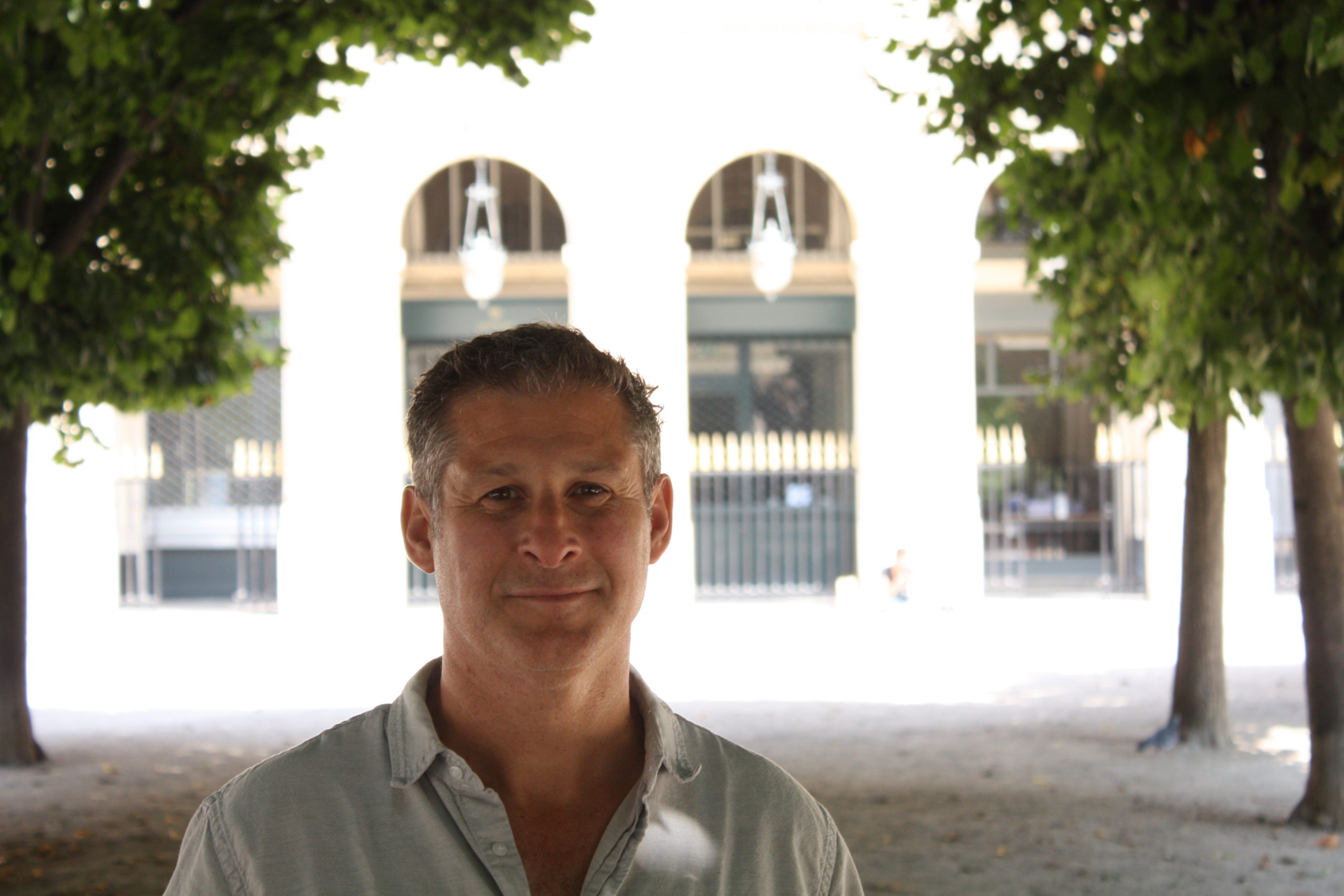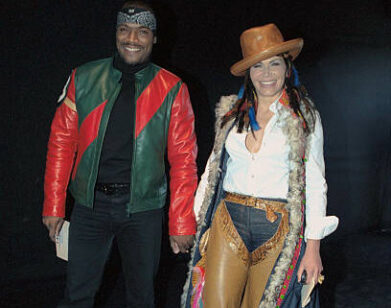Chris Pavone Is Reinventing the Revenge Novel

I no longer know when or in what form most readers consume novels. But I do know that certain novels, brilliantly paced novels, especially Chris Pavone novels, require a degree of speed and mental alertness that make them best read while gripping a hardcover, and not while teetering on the precipice of sleep. Pavone has excelled at such literary puzzles—somewhere between chess and Twister—since his first Luxembourg-set thriller, The Expats, arrived in 2012. Ten years later, Two Nights in Lisbon, his latest ode to backstabbing and turncoating, sends us off on a romantic getaway to the capital of Portugal, until our protagonist wakes up in her hotel room to find her mysterious, young new husband missing. What follows is pure Pavone—which means nothing you’d ever expect. The New York writer (and former publishing editor) was just about to leave for his twin sons’ high school graduation, but paused to answer a few of my questions about crime fiction, foreign lands, and the impact of John Grisham over Thomas Hardy.
———
CHRISTOPHER BOLLEN: It seems to me you’re a fellow destinations writer, which means that your imagination comes alive through a sense of place—Luxembourg, Paris, now Lisbon. How does a specific location grab your interest as a setting for a novel?
CHRIS PAVONE: I travel a lot, or I did. We lived in Luxembourg in 2008 and ’09. My wife had a job there, and we were expats, and that’s where I started writing my first novel. There’s something about international travel and international misadventure that calls to me. A lot of what I like about thrillers and crime fiction is a sense of adventure, and all of that is heightened when you the protagonist is very uncomfortable for some reason. You heighten that discomfort by putting the protagonist in a place far from the customs and language and rules and safety nets of home, where danger lurks around every corner. In terms of places, I wish I could say that I have a master plan, but I don’t. I wrote a book about Luxembourg because I lived in Luxembourg, and I wrote a book set in Paris because Paris is fantastic. That book was a direct outgrowth of my experience living just a couple of blocks from Ground Zero in 2001. I went to visit Paris in 2015, when it was in the grips of its own terror aftermath. It reminded me so much of New York in the fall of 2001. I had long wanted to write a 9/11 novel, but I didn’t want to write the expected 9/11 novel. Here I had Paris, as a 9/11 novel.
BOLLEN: So how did Lisbon come to be the setting for the current novel?
PAVONE: Lisbon was much more random. We were planning a family trip to Lisbon about five years ago, and it surprised me that almost everybody I asked for recommendations had been to Portugal in the previous year. All of a sudden, amongst my acquaintances, Portugal was hot. It had never been a huge priority of mine to go to Lisbon, but suddenly everybody I knew was there. When I got there, I could see why. It’s a very charming place and it’s inexpensive, especially in the context of big European capitals. But there was also this element of intrigue about it. Readers don’t necessarily arrive with their own firm preconceptions of what Lisbon is the way they do with Paris or Berlin or London—even if you’ve never been, you know what they look like because you’ve seen them all in movies. Lisbon felt like more of a blank slate.
BOLLEN: I’m in Paris right now and I went back and read some pages from your 2019 novel The Paris Diversion. I was impressed by how much it evoked the same streets I’ve just been walking down today. When you write about a foreign locale, do you feel some extra-special need to be respectful? For instance, you can do anything you want to New York City—burn it down, knock over some buildings, anything goes. But do you feel some onus to treat a place that isn’t yours with more caution?
PAVONE: I feel the need to get things right. I don’t write about places that I have not been, but I do make things up. Writing the Paris book, I went to the Louvre and I had lunch with a friend who works there and she spent a lot of time explaining to me the protocols that the museum would take in the event of a terrorist attack. I decided not to use those facts in the book, because I don’t want to create the opportunity for anybody else to know about them. I don’t use the names of real restaurants or hotels, or anything. Everything that I write about is based on something, but I don’t want to name drop in that way. Although I do want it to be something of a travelog, I don’t want people to take everything literally. That’s true in the Lisbon book, which opens in a hotel suite I stayed in, but I don’t name the hotel.
BOLLEN: There seems to be two general approaches to thriller-plot writing: those writers who know how it ends from the very start, and those who just wing it and have to go back and sew all the loose parts together with some semblance of order. Which are you?
PAVONE: I have begun every book pretty certain that I knew how it was going to end, and I have been wrong each time. I’m not one of these writers who thinks that the characters develop a mind of their own, and start doing things I didn’t expect. But as I’m writing the book, I come up with different ideas. I wake up in the middle of the night with an idea for something else that should go on in the book. Then, when I get to the end, I set the book aside for a little bit and I try to focus on thinking, “What else can I add here?” This is a result of the fact that I was a book editor for a while, and I didn’t specialize in fiction, but the editorial process was always very important to me, and when I was working on my very first manuscript, I was lucky enough to have some really talented professionals give me feedback on it. One of them was Sonny Mehta, the publisher of Knopf, who read the book and said to me, “I like the book very much, but not enough happens.” That was it. That was all he gave me. At first, I was devastated by that. I tried to focus on, “Well, he likes the book very much. But the “not enough happens” part is a pretty big criticism. I realized that it wasn’t his job to tell me what else should happen. His job was to simply say what he thought was missing, and what was missing was: more. More is something that has always appealed to me about novels. I like big fat, long novels with 50-page asides into characters who don’t really matter. I like worlds that are constructed in their entirety, filled with lots of themes and lots of plot elements. The genre that I write in prohibits me from writing an 800 page book, but I nevertheless want my books to be big stories with a lot of twists.
BOLLEN: I often feel a tension between prose and plot. A thriller plot takes such center stage it often jeopardizes the opportunity, as you say, to write a 50-page tangent on a minor character who isn’t part of the mystery. Do you ever feel that frustration, that the make something happen part crosses swords with the beautiful literary embellishments?
PAVONE: They are definitely competing urges, I don’t dispute that. There are a lot of books in which nothing happens, like a plot that is simply the unraveling of a relationship, or family tensions. There’s no action to speak of, it’s characters who are moving through life. On the other end of the spectrum, there are so many books that are all about plot. I feel like there’s a lot at either end of that spectrum, but I don’t feel like there’s a lot that tries to do both. Those are the books that I’m trying to write.
BOLLEN: What were the books you fell in love with in your youth?
PAVONE: The books that I read in college are so unrecognizable to me now. I only read literature with a capital L, and I found new authors because they published short stories in the New Yorker and Ploughshares. I did not read any contemporary commercial fiction until it was my actual job to do it, when I was a copy editor at Doubleday in the early 1990s. Every year, in the winter, it was all hands on deck to turn John Grisham’s yearly manuscript into two-and-a-half million hardcovers on bookstore shelves as quickly and as typo-free as possible. There were dozens of people who had their hand in the publishing of the book, but there were only a very small handful who had anything to do with the text. I was one of them. My job was extremely finite, but I took it seriously. It was to merge the author’s first pass, with the proof reader’s first pass. When I had a master set of pages, I would take the elevator down to Times Square and get in a taxi, and go to LaGuardia Marine Air Terminal, and get on the shuttle to DC. . You walked onto the plane without a ticket and found an empty seat, and paid on the plane—such an unimaginable way to travel now—and got off and went out to the printing plant and handed the pages to the typesetter. All because that same-day travel—me delivering the manuscript to the typesetter—was faster than overnight FedEx. Every day counted. And then I would stick around to review the second pass of pages, and those John Grisham books in the early ’90s were the first contemporary bestsellers I’d ever read. And they really opened my eyes to a whole new way of looking at what fiction was. Before that, my idea of a great novel was Hemingway, Henry James, Thomas Hardy, and Dostoevsky. Suddenly there were these Grisham books that, while there was no attempt to write a beautiful sentence, they were un-put-down-able. They were stories that had political components and big issues, that were important to the world, and that I agreed with. These were books about the death penalty and big tobacco, and sexual assault. And the fact that he could write books about these subjects that were these types of page turners, to me was remarkable.
BOLLEN: I don’t think it gives anything away to say that Two Nights in Lisbon is a revenge novel. And the revenge novel is a literary sub-genre all its own. Like The Count of Monte Cristo.
PAVONE: Yes, it is a revenge novel. The entire book came from the politics of the time. My first glimmer of writing a story like this was in the fall of 2016, when the Access Hollywood tape revealed that Donald Trump had been committing sexual assault regularly, as a sort of hobby. And then, half of America shrugged. I couldn’t believe it. It didn’t occur to me that there was any way that his candidacy could, should, survive this revelation. Even if he were making it up, even if he was exaggerating, isn’t that, too, a disqualification? And then, he became a president who nominated Brett Kavanaugh to the Supreme Court. Watching those hearings, I realized that people are just unwilling to look at any evidence contrary to their worldview. And I couldn’t help thinking that there has to be a way to make people look at things that they don’t want to look at. That’s why this book is set up to look like a comfort zone to a certain type of thriller reader. Middle aged and older men read most thrillers, and I wanted them to open up this book to find a man who looks like them, who has gone missing on a business trip. This I think is a very comfortable zone for readers who are accustomed to books where the characters look like themselves are presidents and Supreme Court justices and the heroes of the story. But not this time. This is not a book about a missing man. It’s a book about an assaulted woman, but it is set up to look like a the former in order to show readers something that they are perhaps less comfortable with. They probably wouldn’t pick up voluntarily if the flap copy and cover design screamed, “This is a book about sexual assault.”
BOLLEN: So this novel is a Trojan horse, sneaking one narrative in under the pretext of a safer one.
PAVONE: Exactly. That’s exactly what it is.






